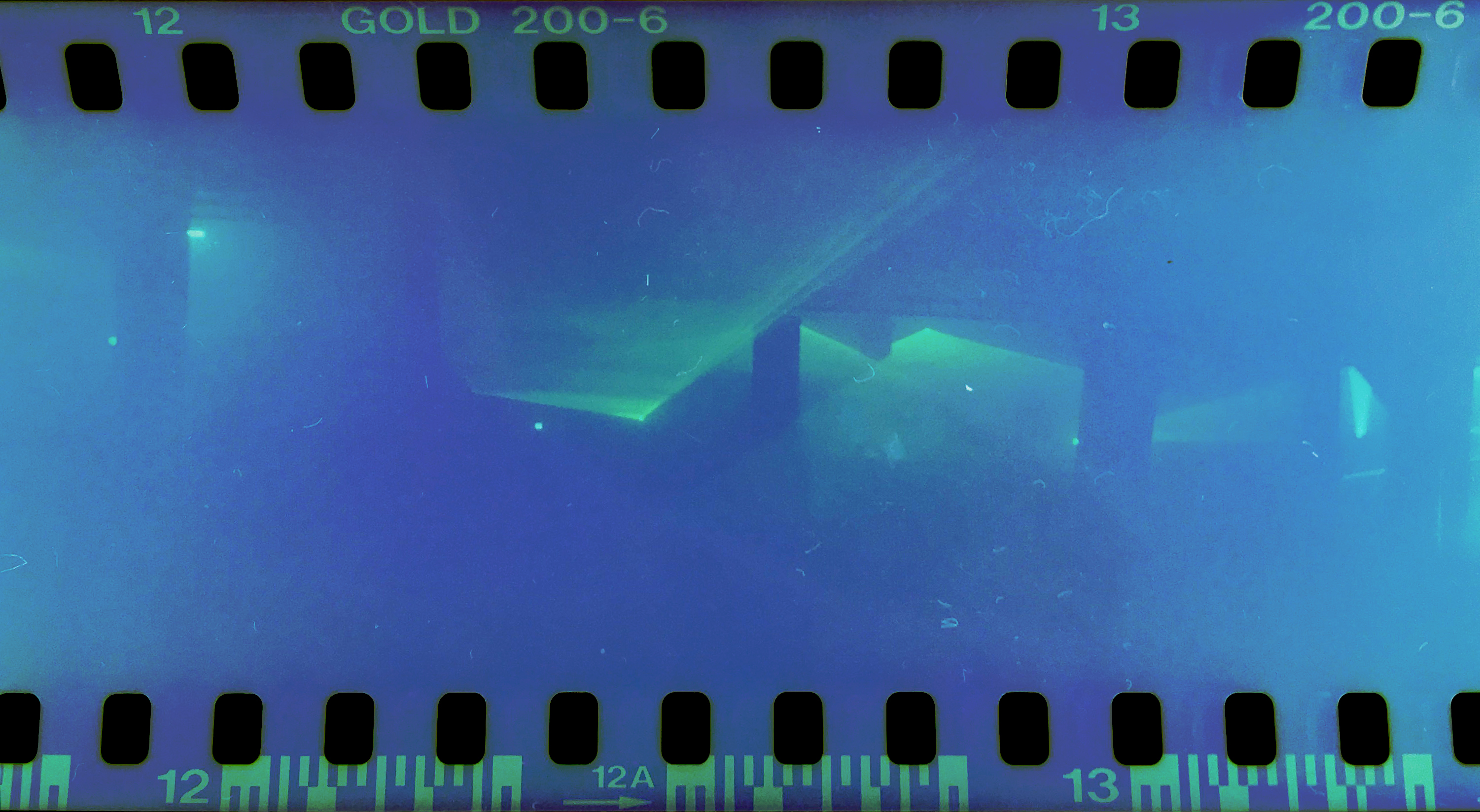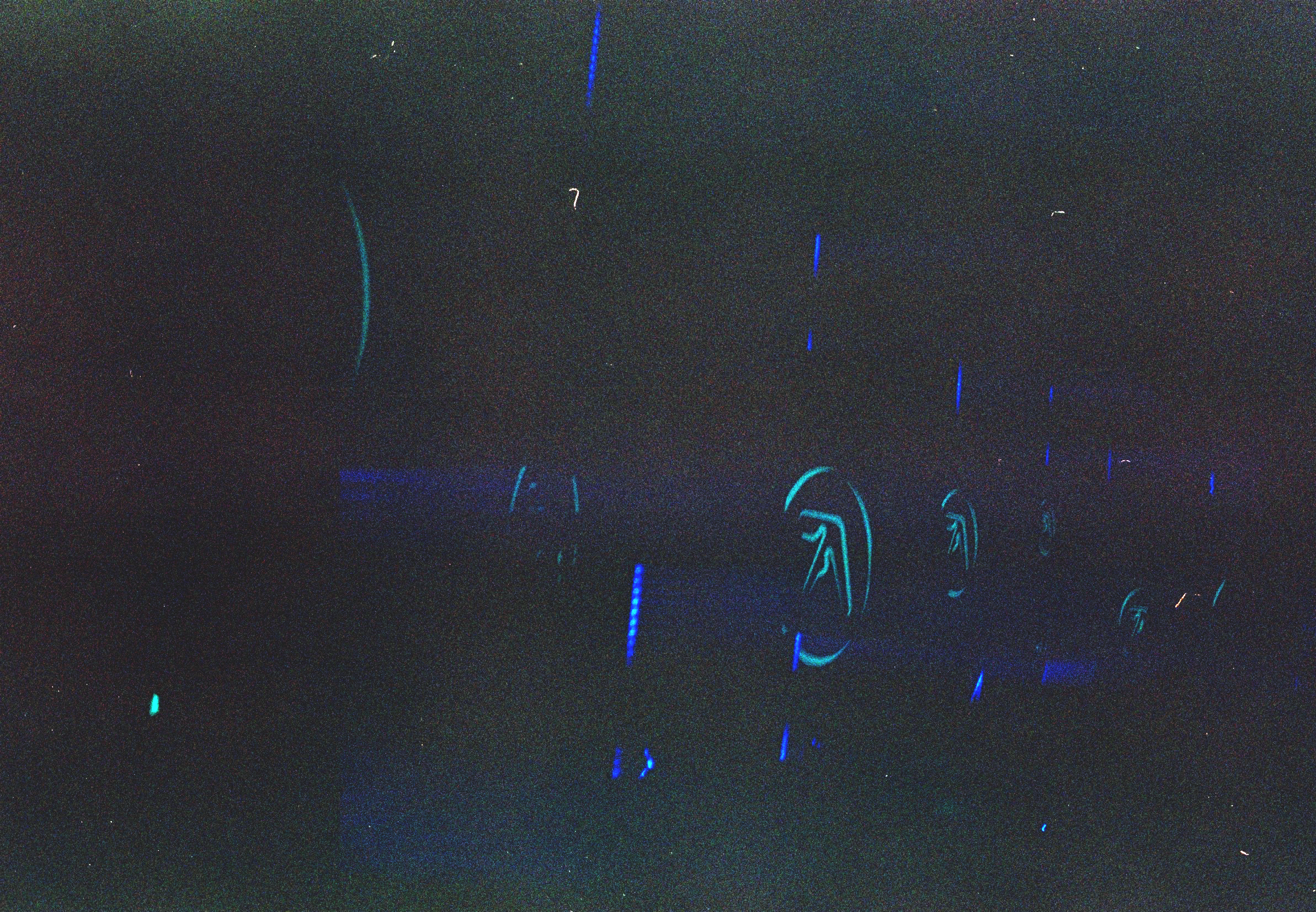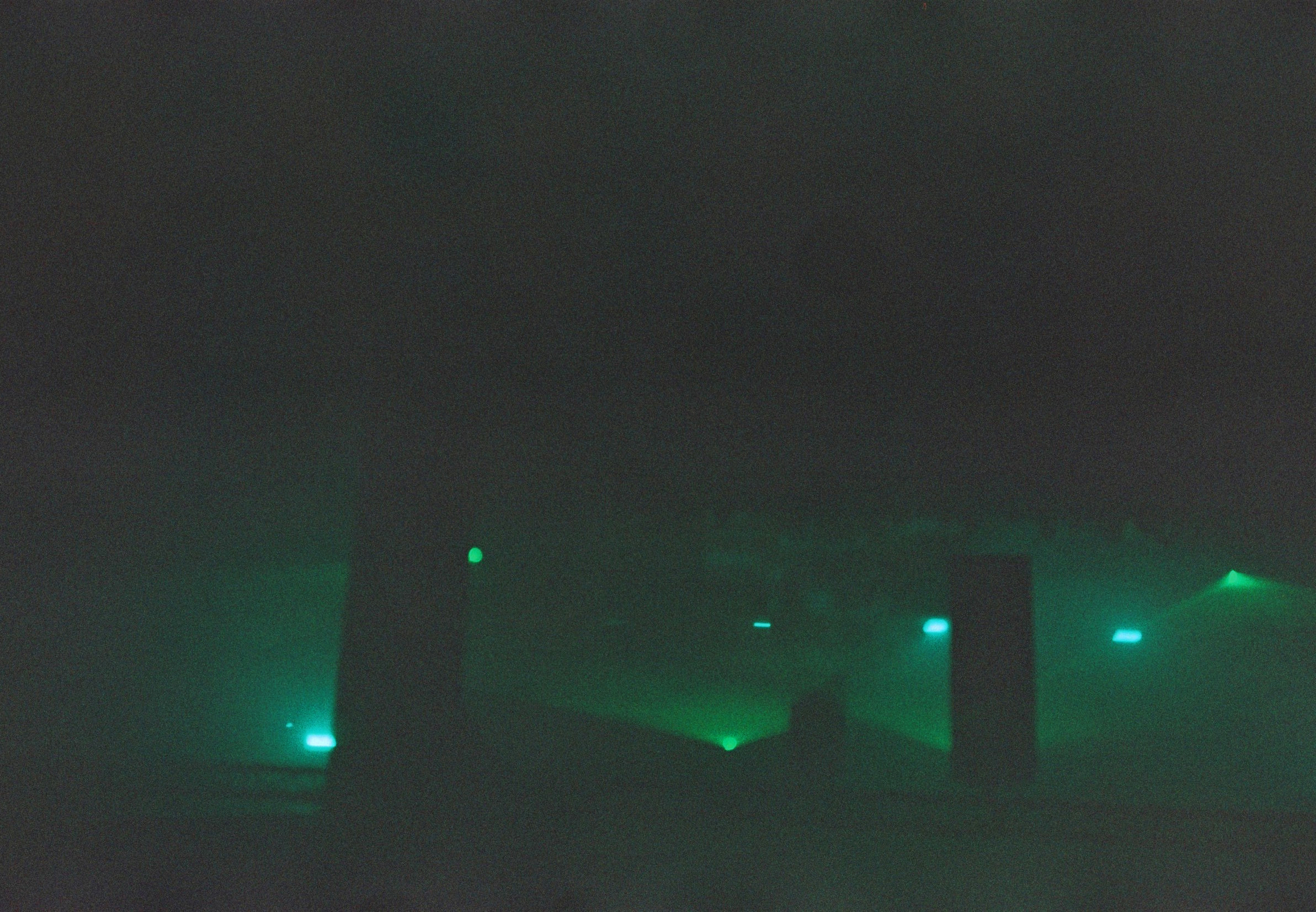Review: Aphex Twin at Funkhaus Berlin
An exhilarating assault on the senses.

It’s so tempting to write about Aphex Twin’s return to Berlin after 15 years with only admiration. How many of you have defining moments in your lives revolving around a Richard D. James track? How many times in a row did I listen to Selected Ambient Works after I discovered it in a stack of burnt CDs in my high school art class? The seeds of much of our excitement to see Aphex Twin in this rare Berlin performance, moreover at the fabled Funkhaus venue, had likely been planted long ago. Needless to say, the hype in the weeks leading up to the show, both online and off, was tremendous. And the quick sell-out of tickets prompted an increasingly inflated resale market. Despite the vagaries and premiums for the show, I kept hearing Berliners say it was the first show they were excited to see in years. Aphex fever had infiltrated Berlin.
I won’t spend much time writing about resale tickets soaring past €300, the ambiguous information around where exactly the show would take place (see the venue photo on the first tickets for where the show did not take place), the sudden second round of €70 ticket sales oddly available for weeks prompting concern about over-selling, or the cacophony of online chatter around whether he was playing live or DJing. If you wish to know more about all this, the internet has plenty to offer. The takeaway is that Funkhaus could certainly have been more upfront about their changes without having to sacrifice any pre-show allure. But I suspect that if the tickets had been something like €15, there would be a whole lot less demand for detailed information. It was a steep price to expect fans to buy purely on name alone, which of course most of us would happily do to see Aphex Twin. But it also likely wouldn’t have been as grand a production without the premium, one that included support from Luca Lozano, Dopplereffekt, Paradox, Luke Vibert, and Skee Mask.
After a sweaty tram ride to Funkhaus and a quick frisk, I walked in to find Dopplereffekt in a mid-set jam, their two masked forms facing each other, accenting a steady electro beat with off-kilter snare echoes and live synth rolls. The music and the room felt understated yet focused. Paradox came on next and the energy shifted from cosmic reflectiveness to playful exuberance. Suddenly breakbeats fluttered around the room and Paradox laughed and shouted heartily to the crowd along with his set. It was a sudden but welcomed energy spike, and a proper warm-up for Aphex Twin. I remember thinking it was perhaps a little prematurely warmed up before the main event had begun. How unknowingly I awaited the atomic maelstrom that was about to descend on us.
Everything about Aphex Twin feels both precisely thought out yet wondrously chaotic. It’s part of what makes him such a true artist. And this show was no exception. Even before Richard started playing, distant ambient soundscapes carried out samples of old kitschy science fiction films, faux-scary phrases drifting along like, “…and then the Blob came!” or references to the end of times from an old-fashioned narrator. It struck me as a perfectly self-deprecating kind of introduction, repurposing out-dated depictions of the future to have the following experience hit that much harder. It felt subtle and purposeful, a combined quality that was surprisingly consistent in a performance otherwise bursting with maximalism. After a few modular bloops and the Aphex logo pulsing on the screens, Richard opened with a sample informing us that, “we are about to take LSD.” And off we went.

In only the first 10 minutes, Aphex Twin had taken us through a hyper-speed tunnel of electronic music history, from drum & bass to hip-hop to dub to ambient to deconstructed pop to jungle to house to hardcore and back again. It was a dizzying introduction of splintered beats, cut up vocals, oddly tuned synths, and an incessant restlessness that demanded full attention. Even when the music eventually turned into more driving 4/4 techno and the crowd responded energetically, Richard never became too comfortable. I was repeatedly reminded of the genius of Aphex Twin in his ability to effortlessly create an environment that is simultaneously violent and caring. His signature engine-revving hi-hats and snares cut through the air like a swarm of metal bees while puffs of soft cloud synth lines hovered around the lofted ceiling. The sound system was certainly capable, but the massive concrete space was not particularly conducive to clear acoustics. It really all depended where you were standing. Up front on the ground floor the bass was chest-filling and the thousands of bodies standing shoulder to shoulder acted as efficient acoustic absorption. We were truly enveloped in Richard’s storm. The further out you went from the middle, especially when standing to the sides, the sound started to get a bit soupy. Though there is a special kind of joy in coming back from outside to slowly be greeted by a reverberated wash of Aphex Twin slowly forming into coherence.
The visuals by Weirdcore, who described his work with Aphex Twin in an interview with It’s Nice That as “a psychological overload,” were as essential to the experience as the music. The mutated imagery, splattered across a constellation of screens, flashed combinations of the Aphex Twin logo, pulsing under a live audience feed that occasionally mapped Richard’s own distorted face onto the crowd. As the tempo started crossing 130, strobes and green lasers spazzed around, cycling through an array of rave references. During one particularly moment, images of well-known German electronic artists such as Ricardo Villalobos, Conny Plank, and Kraftwerk appeared with collaged muppet-like features, standing as a reminder that Aphex Twin, despite drawing thousands of people, is still taking an all-inclusive piss. It’s this commitment to smashing all idols, even himself, that has kept Aphex Twin free from stagnancy throughout his career. And here at Funkhaus in 2018 we found the totality of his creative anarchy in full, glorious effect.

In the final five minutes, Richard cranked his drums to what seemed like 1000 BPM, pulled out all the stops, and covered the audience in a tsunami of glitched-out noise that could have been the soundtrack to the world being sucked through a small vacuum hole in space. Accompanied by a barrage of strobes, it was the first time I’ve ever seen so many people all standing still, as if in a frozen stupor. My heart went out to anyone who didn’t have earplugs. And then suddenly, the vacuum closed, the lights turned off, and the crowd erupted. At this point, I needed to sit outside and digest. Though I was eager to check Luke Vibert and Skee Mask, in all honesty, I’m still digesting Aphex Twin’s set two days later. So while I was drawn to the dancefloor out of curiosity, I found myself feeling it more as a distraction from basking in the afterglow of Aphex Twin’s shock therapy. Too bad, because Luke Vibert and Skee Mask were playing some damn good tunes.
Despite the wonder of the whole event, I couldn’t help but think that we were somehow all caught in a Twilight Zone episode living as if it were 1993 while all the newspapers date us 25 years in the future. So much has happened musically and culturally in 25 years, but somehow much of techno stays firmly planted in idealizing the past. Seeing Aphex Twin in the concrete Shedhalle of Funkhaus, a venue clearly picked for its history and industrial authenticity, naturally evokes a sense of ‘90s raves. But with a €70 ticket, a clever yet problematic cashless system, and a production value many times that of any illegal rave, the event lent itself to be more like a vintage-branded lemon soda rather than real, fresh lemonade.
Ultimately, it comes down to expectations. For newcomers to Richard’s hybrid DJ-with-modular-rig set, it was an undeniably impressive show, whether technically a live performance or not. Those without any prior experience of the days from which all of this was birthed (writer’s confession: I was one year old when Richard put out his debut record), it may seem all very fresh and new. And of course it’s a testament to the genius of Richard’s music that it still feels this way. But the reality is that a large portion of his set was comprised of other people’s music. Scatter in some standout reworks of his own productions along with some live synths and effects and you get a clearer picture of what was being served up. Whether this justified a €70 ticket, or whether you didn’t care and were happy to see Aphex Twin in any capacity, is something the message boards can chew on. For those who grew up with Aphex Twin, the show was likely a highly moving nostalgia trip and maybe even slightly bittersweet. Either way, what everyone was presented with on Thursday night was nothing short of an exhilarating assault on the senses.

